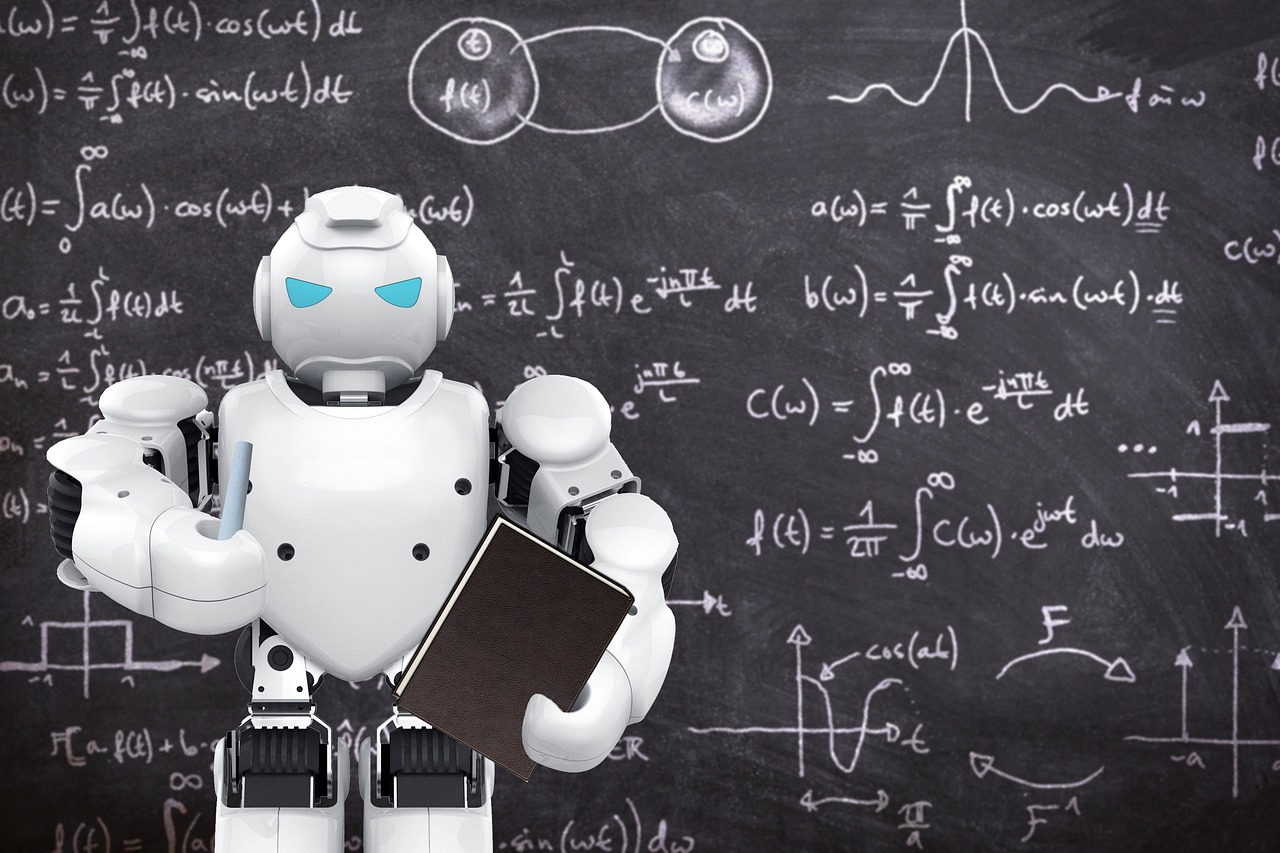Physical Address
304 North Cardinal St.
Dorchester Center, MA 02124

While educators, psychologists, and parents continue to argue over the appropriate amount of screen time for kids, artificial intelligence and machine learning are two other forms of emerging technology that are starting to change educational institutions and tools and shape the future of education. There will be significant changes to the role of a teacher and best practices in education, even though most experts think that teachers’ indispensable presence cannot be replaced.
Artificial intelligence has the ability of computers and other machines to carry out tasks typically associated with human intelligence.
This can involve anything from robotics and neural networks to computer vision, machine learning, and natural language processing.
Artificial intelligence has long been present online and in computer systems, even though most people only associate it with generative AI tools like ChatGPT these days.
Recommendation AI is used by companies like Meta Platforms (META -3.36%) and Netflix (NFLX -0.14%) to determine which accounts and films to show you. The parent company of Facebook also uses AI to screen images that it prohibits, like nudity.
Furthermore, voice assistants and chatbots such as Alexa and Siri provide another example of a standard AI system.
Let’s take a look at how artificial intelligence is used in education:
The most obvious uses of AI in education are for language learning and translation.
In addition to being a proficient translator, ChatGPT is a valuable tool for language learning since it helps with work checking and teaches students vocabulary and grammar.
After Chegg revealed the challenge from ChatGPT, many stocks dropped, including the well-known language-learning app Duolingo (DUOL -4.65%).
Investors were concerned that users of Duolingo might quit paying for its services and switch to using ChatGPT and other free AI tools. Nonetheless, ChatGPT’s features have already been incorporated into Duolingo’s product.
For instance, the company introduced Duolingo Max in March 2023, which enhances Duolingo Super with two new features via GPT-4 technology. These features provide users with an explanation for incorrect answers and a role-playing tool that lets them practice conversations in various contexts.
Artificial Intelligence has already been used in education, mainly as testing systems and skill-development tools. With the continued development of AI educational solutions, AI will help close gaps in knowledge and instruction and enable educators to accomplish more than in the past for teachers and schools.
AI can improve productivity, personalization, and administrative tasks so that teachers have more time and freedom to impart knowledge and flexibility—qualities that are exclusively human and difficult for machines to replicate. The goal of AI in education is to combine the best rates of teachers and devices to provide the best possible results for students.
Although some students have already found ChatGPT to be a helpful tool for outsourcing assignments, students learning to write or attempting to register more clearly can also benefit significantly from the generative AI technology.
A well-known example of an AI tool used to assist with writing is Grammarly, an AI-based spelling and grammar checker. The program provides guidance on tone, clarity, and other aspects of the paper that can be improved.
Similarly, documents can be altered, rewritten, or changed in other ways as needed by ChatGPT and other generative AI programs.
AI tools can assist creative writers with various needs, such as story ideas, dialogue, writing prompts, etc. They can also help writing teachers come up with similar views to aid in teaching.
While plagiarism will always be wrong, educators should not discount the possibility that AI systems could improve students’ writing skills.
Education professionals have long prioritized adapting instruction to meet the unique needs of each student. Still, artificial intelligence (AI) will enable a degree of differentiation that is unattainable for instructors overseeing thirty students in a classroom.
Many businesses, including Content Technologies and Carnegie Learning, are currently creating intelligent instruction design and digital platforms that use AI to give students from pre-K through college-level learning, testing, and feedback that highlights knowledge gaps, assigns challenges they are prepared for, and if needed, shifts the conversation to new subjects.
As artificial intelligence (AI) develops, it can recognize the facial expressions of students with difficulty understanding a concept and adjust a lesson accordingly. While it is not currently feasible, AI-powered machines will eventually be able to customize curriculum to meet the needs of each student.
Grading assignments and tests takes a lot of time from a teacher. How artificial intelligence is used in education can efficiently handle these tasks and provide suggestions for bridging the knowledge gaps. While machines can already grade multiple-choice exams, they are almost ready to evaluate written responses.
AI frees up more time for teachers to spend with each student by taking over administrative tasks. AI has enormous potential for enhancing the efficiency of the admissions and enrollment processes.
Additionally, AI has many current and future uses in early childhood education.
AI can be used to develop interactive games and other educational resources that help young kids learn social or academic skills.
Monitoring systems that track children’s behavior to gain insights into their development can also be powered by artificial intelligence. When the teacher is busy, it can serve as a helper by attending to the students.
AI has been demonstrated in some studies to enhance early childhood education instruction and learning, including language development.
While artificial intelligence education won’t wholly upend the educational system, as the Chegg announcement demonstrates, teachers and students already use cutting-edge tools like ChatGPT.
Like computer science, which has grown in importance over the past three decades, AI is likely to enhance rather than replace the current educational infrastructure, so students and teachers should prioritize learning how to use these tools.
Above all, how artificial intelligence is used in education will enhance student learning and allow teachers to concentrate on areas where they can be most helpful.